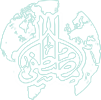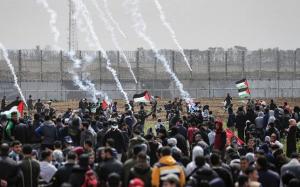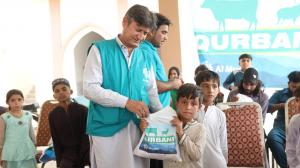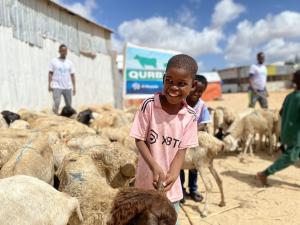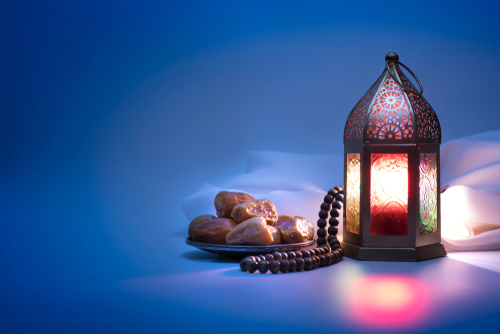 In Islam, there are two key festivals taking place at different times throughout the year – Eid ul-Fitr and Eid ul-Adha. Both celebrations are significant for very different reasons, although there are also some similarities between the two Eids, too.
In Islam, there are two key festivals taking place at different times throughout the year – Eid ul-Fitr and Eid ul-Adha. Both celebrations are significant for very different reasons, although there are also some similarities between the two Eids, too.
When is Eid?
Taking place at the end of Ramadan, Eid Al Fitr brings the month to a close with a festival and celebration. Eid Al Fitr 2025 will be observed on 30th March , 2025 in UK depending on the moon sighting.
Eid Al Adha follows the annual Hajj pilgrimage and commemorates the selfless sacrifice made by Prophet Ibrahim (A.S). Eid Al Adha 2025 is expected to begin from the evening of Friday June 6th, 2025 until the evening of Tuesday June 10th, 2025. Muslims around the world are bound to donate Qurbani 2025 on the occasion of Eid Al Adha.
As the Islamic calendar follows the lunar cycle, the exact dates and timings of both Eids are dependent on the sighting of the moon. For more accurate timings, we would recommend consulting with your local Mosque or Imam nearer the time.
The Festival of Eid
Both festivals of Eid have several similarities, as well as their distinct differences which are outlined below.
On both Eids, Muslims will wake early, perform their ablutions and dress in their finest or new clothes to attend the Mosque. Here, they will worship and perform Eid salah (prayers) in the congregation. The remainder of the festival of both Eids will be taken up with visiting family, friends, and loved ones.
Eid al-Fitr 2025
Eid al-Fitr concludes the auspicious month of Ramadan, a blessed time of fasting, prayer, and worship for Muslims all around the world.
Following the Holy month of Ramadan, where Muslims fast between the hours of sunrise and sunset, Eid ul-Fitr brings an end to the fasting and in fact, Muslims are not permitted to fast during Eid al-Fitr (this includes those required to make up for missed fasts during Ramadan).
However, Eid al-Fitr is far more than just a cause to celebrate the end of the month of fasting. It is also a great opportunity to thank Allah (SWT) for the gift of strength He gave us throughout Ramadan, allowing us to complete our daily fasts, refrain from sinful or impure thoughts and actions, and allow us greater scope for prayer and worship.
It is also believed that the reward of every good deed performed in Ramadan is multiplied by 70 times. Its means, donating Zakat or Sadaqah during Ramadan is equivalent to having performed that same deed every day for 83 years.
Above all else, this Eid is a time for unity, compassion and togetherness to refresh the mind and soul and strengthen your relationship with your loved ones and Allah (SWT).
Eid ul-Adha 2025
Eid al-Adha, also known as greater Eid and the Festival of Sacrifice, follows the annual pilgrimage of Hajj (the Fifth Pillar of Islam) and serves to commemorate the ultimate sacrifice made by Prophet Ibrahim (A.S) upon the wishes of Allah (SWT). It is widely considered to be the Holier of the two Eids.
This is where Muslims must make a sacrifice (Qurbani) to remember the great sacrifice of Prophet Ibrahim (A.S) and reflect his willingness to give up his beloved son. Prophet Ibrahim (A.S) dreamed that Allah (SWT) appeared to him and ordered him to sacrifice his only son in His name – in his devotion to Allah (SWT), Prophet Ibrahim (A.S) readied himself to sacrifice his son to Allah (SWT) atop Mount Arafat. However, Allah (SWT) intervened and at the last second, spared Prophet Ibrahim’s (A.S) beloved son, replacing him with a ram to be sacrificed in his place.
The continued practice of Qurbani serves as a reminder of Prophet Ibrahim’s utter devotion to Allah (SWT), reminding today’s Muslims of the importance of obedience to Him.
Today, Muslims around the world perform Qurbani during Eid al-Adha, slaughtering a livestock animal before dividing the meat into three equal parts – one for the individual, another for their family and friends, and the third to those in need.
Many Muslims who live in the UK choose to donate Qurbani online, Al Mustafa Welfare Trust is one of the trusted charity organizations that ensures the animals are sacrificed according to Qurbani rules. We distribute Qurbani meat to different continents like Asia, Africa, and the Middle East. Our donors have the option to donate the Qurbani 2025 to multiple countries where most needed including Palestine, Africa, Pakistan, Bangladesh, Malawi, etc.
In our Qurbani FAQ page, we have answered all questions regarding Qurbani 2025 that Muslims might have about Eid-e-Qurbani.
